Jardiance 25 mg
Jardiance 25 mg contains empagliflozin, a medication that is classified as a sodium-glucose cotransporter-2 (SGLT2) inhibitor. Jardiance 25 mg works by inhibiting the production of the SGLT2 protein in the kidneys. This results in the removal of blood sugar (glucose) through the urine. As a result, Jardiance 25 mg helps control blood sugar levels.
Jardiance 25 mg is used to treat type 2 diabetes in patients who are unable to regulate their blood sugar levels via diet and exercise alone. Jardiance 25 mg is commonly used to treat type 2 diabetes in adults, either alone or in combination with other medications.
Type 2 diabetes is a chronic or lifelong disease that impairs our body’s glucose metabolism. Individuals with type 2 diabetes either produce insufficient insulin or the insulin produced is unable to work properly in the body (insulin resistance). Type 2 diabetes is most commonly found in middle-aged or older adults, which is why it is also referred to as adult-onset diabetes.
Jardiance 25 mg typically does not produce major negative effects. Diarrhoea, nausea, vomiting, and a metallic taste in the mouth are all common adverse effects. In extremely rare situations, it may result in lactic acidosis (too much lactic acid in the body), which manifests as elevated levels of “ketone bodies” in the urine or blood, rapid weight loss, nausea or vomiting, stomach pain, excessive thirst, and quick and deep breathing, among other symptoms. Your blood sugar level may drop if you combine this medication with strenuous exercise, excessive alcohol consumption, or meal skipping. Consult your physician if you have any of the health problems listed above that may require immediate medical attention.
Jardiance 25 mg is most effective when used in conjunction with a healthy lifestyle that includes decreasing weight if you are overweight (BMI >25), consuming less calories (reduced fat and sugary foods), and increasing your physical activity (at least 150 min of activity every week).
Jardiance 25 mg indications Type 2 diabetic mellitus
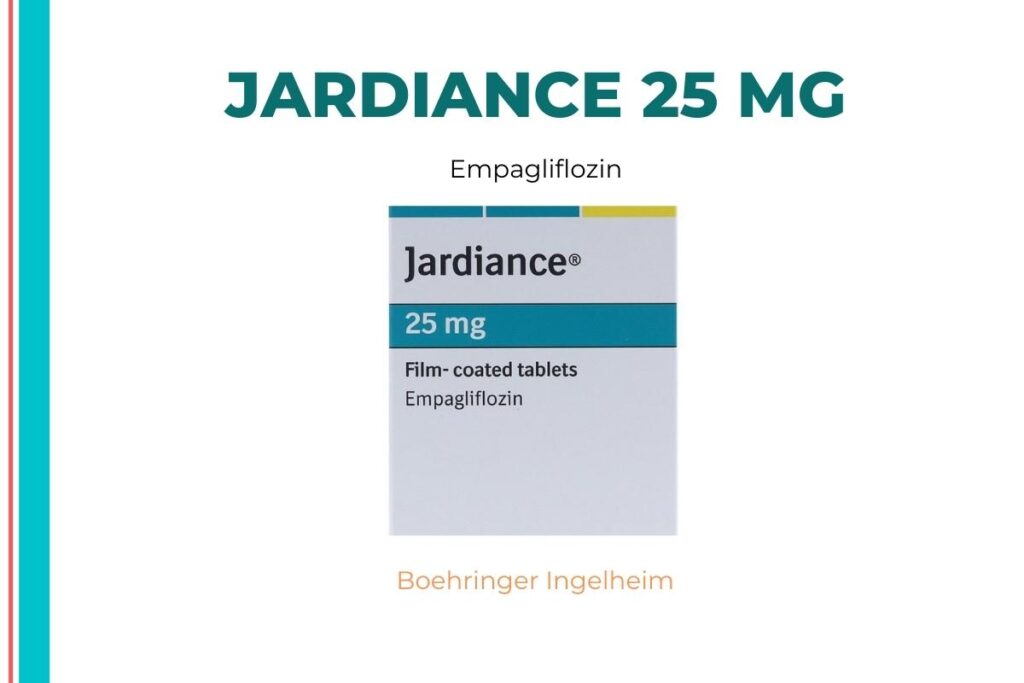
Medicinal Advantages
Jardiance 25 mg is critical for treating diabetes and maintaining stable blood sugar levels by slowing the absorption of sugar and boosting the body’s insulin sensitivity. Jardiance 25 mg does not induce a significant drop in blood glucose or hypoglycemia. Jardiance 25 mg is the only recommended treatment for prediabetes. Jardiance 25 mg also helps avoid significant diabetes consequences such as kidney damage (Diabetic Nephropathy), blindness (Diabetic Retinopathy), loss of sensation in the hands and feet (Diabetic Neuropathy), and even foot amputation! Jardiance 25 mg also helps to lower the risk of heart attack or stroke.
Use Instructions
Jardiance 25 mg should not be used unless a doctor has recommended it. Jardiance 25 mg should be used with food to assist minimize stomach or intestinal side effects, or as your doctor directs. Your doctor will determine the frequency with which you should take your medications based on your medical condition. Jardiance 25 mg should be taken with a full glass of water.
Storage Keep out of direct sunlight and in a cool, dry area.
Jardiance 25 mg Adverse Reactions
Each medication has some adverse effects. During the initial days of Metformin treatment, you may experience digestive issues, nausea, vomiting, diarrhea, abdominal pain, and loss of appetite. However, they would be transient and might be alleviated after a period of time. However, if you continue to experience discomfort, consult your physician. When taken alone, Jardiance 25 mg does not induce an abrupt drop in blood sugar levels (hypoglycemia). However, when paired with other risk factors such as poor nutrition, missing meals, excessive alcohol use, or hard activity, it may result in hypoglycemia (low blood sugars). Thus, it is preferable to monitor blood sugar levels on a frequent basis. Consult your doctor if any adverse effect becomes bothersome.
Adverse Drug Reactions
Certain diabetic patients treated with Empagliflozin may develop a potentially fatal disease called lactic acidosis. Lactic acidosis occurs when an abnormal amount of lactic acid accumulates in the blood. Thus, normal functioning of the liver and kidneys is essential for the clearance of excess lactic acid from the blood. Metformin should not be used if you have renal disease as determined by a blood test. Because empagliflozin may cause a decrease in vitamin B-12 levels, it is recommended that you get blood and vitamin tests on an annual basis. When combined with insulin, empagliflozin has the potential to significantly reduce blood sugar levels. As a result, the doctor may reduce the insulin dose.
Interactions Between Drugs
Empagliflozin may interact with insulin, blood pressure-lowering medications (hydrochlorothiazide, amlodipine), water pills/diuretics (furosemide), antibiotics used to treat eye infections (gatifloxacin), antihypertensive medications (metoprolol), steroids (prednisolone), and thyroid hormones, among others. Therefore, inform your doctor if you are currently on any of these medications prior to starting Empagliflozin.
Drug-Food Interaction: Taking Empagliflozin with alcoholic beverages may raise the chance of developing lactic acidosis (a build-up of lactic acid in the blood) and hypoglycemia, two rare but serious and potentially fatal conditions.
Empagliflozin should be avoided in people with vitamin B12 deficiency, kidney or liver difficulties, cardiovascular illness (heart-related problems), or low blood sugar (hypoglycemia), since it may exacerbate the situation.
Safety Recommendations
ALCOHOL
It is recommended that you avoid alcohol while using Empagliflozin to avoid unpleasant side effects such as lactic acidosis.
PREGNANCY
Empagliflozin is contraindicated in pregnancy. However, if your doctor believes the benefit to you outweighs the danger, he or she may prescribe it for you during pregnancy. You should not take Empagliflozin without consulting your doctor.
BREAST FEEDING
Empagliflozin is not recommended if you are pregnant or plan to become pregnant.
DRIVING
Empagliflozin monotherapy (treatment of a condition with a single medicine) has no influence on the ability to drive or operate machinery because it does not cause hypoglycemia (low blood sugar).
LIVER
Empagliflozin should be used with caution in patients having a history of liver disease/conditions. Your doctor may need to alter the dose.
KIDNEY
Empagliflozin should be used cautiously, even more so if you have a family history of kidney disease/conditions. Your doctor may need to change the dose based on your renal function. Empagliflozin is contraindicated in patients with severe renal dysfunction. If you are using Empagliflozin, it is critical to have regular kidney function tests.
No. Habit Formation:
Advice on Diet and Lifestyle
Spend at least 150 minutes per week in moderate-intensity physical activity or 1 hour and 15 minutes per week in high-intensity physical activity.
Gradually losing weight to obtain a healthy body mass index (18.5 to 24.9).
Substituting whole grain foods for refined carbohydrate foods and increasing consumption of fruits, vegetables, and other fiber-rich foods.
Reduce saturated fat (or hidden fat) consumption in foods such as chips, crisps, pastries, biscuits, and samosas. For daily cooking, choose oils high in omega 3 fatty acids. Use palm oil, mustard oil, groundnut oil, rice bran oil, or safflower oil for frying.
Avoid excessive stress, as it may cause your blood sugar level to rise. You can learn stress management strategies such as mindfulness, meditation, or yoga to help you manage stress-related blood sugar changes.
Make a point of purchasing low-fat dairy products (low-fat yoghurt, fat-free milk and cheese etc.).
Maintain a normal blood pressure (140/90) as much as possible because this minimizes the risk of cardiovascular disease in diabetic people.
Special Guidance
Continue taking Empagliflozin even if you believe your blood sugar levels are stable. If you miss a dosage, do not double the dose; instead, visit your medical physician.
When taking Empagliflozin, consume small frequent meals and prevent prolonged fasting. Be aware of hypoglycemia (low blood sugar) symptoms such as excessive sweating, dizziness, palpitations, shivering, severe thirst, dry mouth, dry skin, and frequent urination. If you encounter any of the symptoms listed above, immediately ingest 5-6 candies, 3 glucose biscuits, or 3 teaspoons honey/sugar and see your physician. Carry these with you at all times, especially on lengthy journeys.
It is always preferable if your physician is aware of any underlying illnesses such as kidney or liver disease, prior heart attack, or alcohol consumption before prescribing Empagliflozin.
Avoid alcohol consumption while using Empagliflozin as it raises the risk of hypoglycemia (low blood sugar that can be fatal in severe situations) and lactic acidosis (when the lactic acid increases in the body which impacts the functioning of various organs in the body).
Quit smoking and limit carbohydrate-rich foods such as potatoes, rice, mangoes, bread, and sugar.
Bear in mind that the most critical step toward controlling blood sugar levels is lifestyle adjustment.
Additional Information: This item is non-refundable.
Glossary of Diseases and Conditions
Type 2 diabetes is a chronic or lifelong illness that impairs the body’s ability to utilize insulin appropriately. Thus, individuals with type 2 diabetes either do not make enough insulin or have insulin resistance. Type 2 diabetes is most prevalent in people who are middle-aged or older, which is why it is often referred to as adult-onset diabetes. Increased thirst, frequent urine at night, poor wound healing, increased hunger, weariness, and blurred eyesight are all symptoms of type 2 diabetes. In certain circumstances, weight increase may occur, whereas in rare instances, weight reduction may occur. Type 2 diabetes complications include neuropathy (nerve damage), nephropathy (kidney damage), retinopathy (damaged retina of the eyes or blindness), amputation of limbs, sexual dysfunction, and an increased risk of heart attack or stroke.
FAQs
Empagliflozin is used exclusively to treat type 2 diabetes, also referred to as ‘non-insulin-dependent diabetes’.
Empagliflozin may induce a mild stomach upset. However, do not discontinue use. Consult your physician if you experience severe stomach distress.
If you experience thirst after taking Empagliflozin, this could be due to dehydration, as Empagliflozin can promote fluid loss. Increase your fluid intake; if you continue to feel thirsty, visit your doctor.
If you experience symptoms such as increased hunger, increased thirst, frequent urination (typically at night), unexplained weight loss, exhaustion, blurred vision, slow wound/sore healing, or repeated infections, consult a physician since this could be a sign of type 2 diabetes.
If you feel as though your blood sugar is dropping and you are becoming weak, immediately consume sugar candies or sugary beverages. It will assist in balancing your body’s blood sugar levels. As a result, it is prudent to have sugar candies with you.
Lactic acidosis is an uncommon but potentially fatal illness that occurs when the bloodstream accumulates too much lactic acid. When cells are depleted of oxygen, prolonged use of Empagliflozin may result in lactic acidosis. Lactic acidosis symptoms include muscle burning, soreness, rapid breathing, nausea, and stomach pain. Inform your doctor immediately about this issue.
Empagliflozin should be avoided in patients who have an allergy to any of the medication’s components or excipients. It is contraindicated in persons with moderate to severe kidney or liver problems. Additionally, it is not recommended to use this medication if you consume an excessive amount of alcohol. If you are pregnant or breastfeeding, inform your health care expert.
If you have diabetes, you should undergo a HbA1c test every three months.
There is currently no clinical evidence that Empagliflozin has an effect on male or female fertility.
Hypoglycemia is a term that refers to dangerously low blood sugar levels. Nausea, headache, irritability, hunger, perspiration, and dizziness are all signs of hypoglycemia.

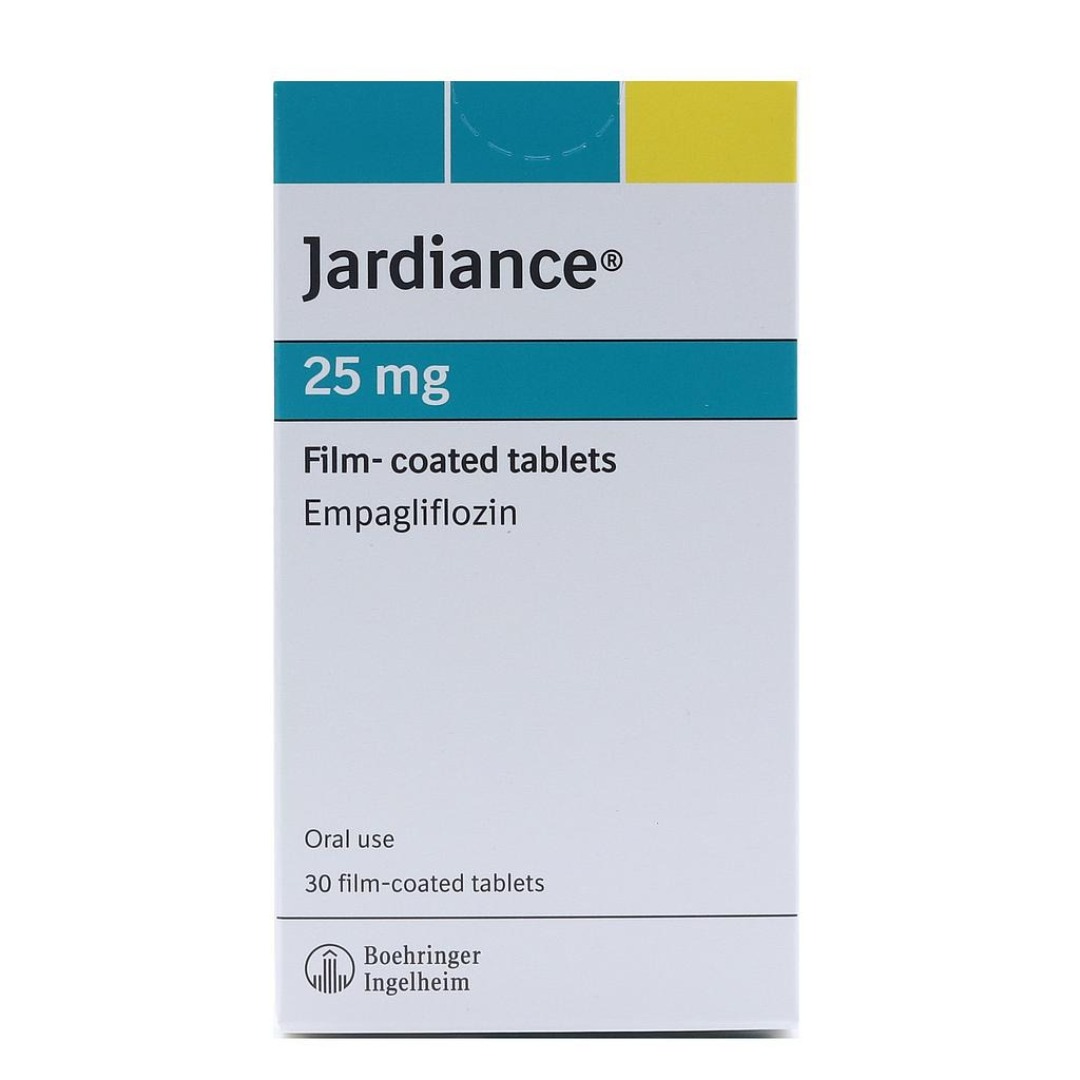
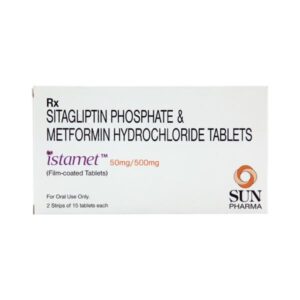
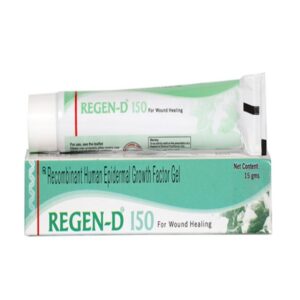

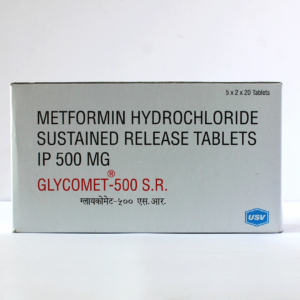
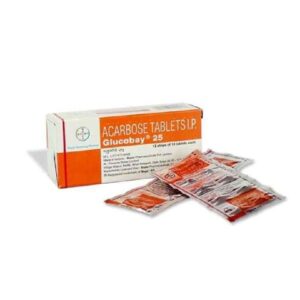

Leave a Reply
You must be logged in to post a comment.